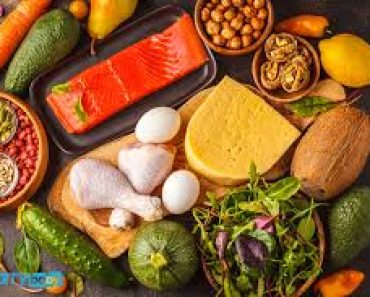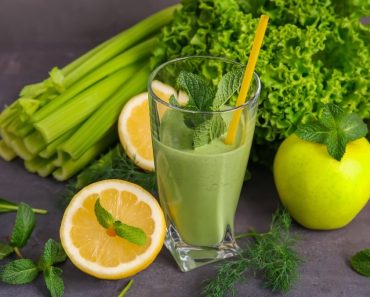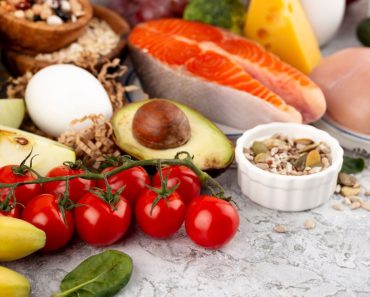In the quest for better health and wellness, the concept of nutrient-dense foods and superfoods has gained significant attention. These foods are celebrated not just for their nutritional content, but also for their potential to prevent disease, boost energy, and promote overall well-being. This article delves into the benefits of nutrient-dense foods, identifies key superfoods, and offers practical tips on how to incorporate them into your daily diet.
Understanding Nutrient-Dense Foods
Nutrient-dense foods are those that provide a high amount of vitamins, minerals, and other essential nutrients relative to their calorie content. Unlike calorie-dense foods, which are often high in sugars and unhealthy fats with little nutritional value, nutrient-dense foods offer a substantial health benefit per bite. Incorporating these foods into your diet can help you meet your nutritional needs without consuming excessive calories.
Key Nutrients Found in Nutrient-Dense Foods
Vitamins: Essential for various bodily functions, including immune support (Vitamin C), bone health (Vitamin D and K), and energy production (B Vitamins).
Minerals: Crucial for maintaining healthy bones (Calcium), red blood cells (Iron), and electrolyte balance (Potassium, Magnesium).
Antioxidants: Help protect the body from oxidative stress and inflammation. Common antioxidants include Vitamins A, C, and E, as well as flavonoids and polyphenols.
Fiber: Important for digestive health, weight management, and blood sugar control.
Healthy Fats: Such as omega-3 and omega-6 fatty acids, which support heart health and brain function.
Protein: Essential for building and repairing tissues, producing enzymes and hormones, and supporting immune function.

Top Nutrient-Dense Superfoods
1. Leafy Greens
Leafy greens like spinach, kale, and Swiss chard are incredibly nutrient-dense. They are rich in vitamins A, C, and K, as well as minerals like calcium and iron. These greens are also high in fiber and antioxidants, which help fight inflammation and support overall health.
2. Berries
Berries, including blueberries, strawberries, raspberries, and blackberries, are packed with vitamins, minerals, and antioxidants. They are particularly high in vitamin C and various polyphenols, which have been shown to reduce the risk of chronic diseases like heart disease and cancer.
3. Nuts and Seeds
Almonds, walnuts, chia seeds, and flaxseeds are excellent sources of healthy fats, protein, and fiber. They also provide essential minerals such as magnesium and zinc, which support metabolic health and immune function.
4. Fatty Fish
Fish like salmon, mackerel, and sardines are rich in omega-3 fatty acids, protein, and vitamins D and B12. Omega-3s are known for their anti-inflammatory properties and their role in supporting heart and brain health.
5. Whole Grains
Whole grains, such as quinoa, brown rice, oats, and barley, are loaded with fiber, protein, and essential nutrients like magnesium, selenium, and B vitamins. They provide sustained energy and help maintain healthy digestion.
6. Legumes
Beans, lentils, chickpeas, and peas are high in protein, fiber, vitamins, and minerals. They are particularly beneficial for heart health due to their ability to lower cholesterol levels and regulate blood sugar.
7. Cruciferous Vegetables
Vegetables like broccoli, cauliflower, Brussels sprouts, and cabbage are known for their high nutrient content and cancer-fighting properties. They are rich in vitamins C and K, folate, and phytonutrients that help detoxify the body.
8. Avocados
Avocados are a unique fruit, high in healthy monounsaturated fats, fiber, vitamins E, K, and C, and potassium. They support heart health, reduce inflammation, and help absorb fat-soluble vitamins from other foods.
9. Eggs
Eggs are a powerhouse of nutrients, including high-quality protein, vitamins B12 and D, and choline, which is essential for brain health. Despite concerns about cholesterol, moderate egg consumption is associated with numerous health benefits.
10. Sweet Potatoes
Sweet potatoes are rich in beta-carotene, which the body converts to vitamin A. They also provide fiber, vitamins C and B6, and potassium. These nutrients support vision, immune function, and digestive health.
Benefits of Incorporating Superfoods into Your Diet
Improved Nutritional Intake
By focusing on nutrient-dense foods, you can ensure that your body gets the necessary vitamins and minerals without excessive calorie intake. This can help prevent nutrient deficiencies and support overall health.
Enhanced Energy Levels
Nutrient-dense foods provide a steady supply of energy, preventing the blood sugar spikes and crashes associated with processed foods. This can lead to improved stamina and productivity throughout the day.
Disease Prevention
Many superfoods contain antioxidants and anti-inflammatory compounds that help reduce the risk of chronic diseases such as heart disease, diabetes, and cancer. Regular consumption of these foods supports long-term health and longevity.
Better Weight Management
Foods high in fiber and protein can help control appetite and reduce overeating. This makes it easier to maintain a healthy weight and reduce the risk of obesity-related conditions.
Improved Digestive Health
Fiber-rich superfoods promote healthy digestion and prevent issues such as constipation and bloating. A healthy gut microbiome is also linked to better immune function and mental health.
Practical Tips for Adding Nutrient-Dense Foods to Your Diet
Start Your Day Right: Incorporate berries, nuts, and seeds into your breakfast with smoothies, yogurt, or oatmeal.
Snack Wisely: Choose nutrient-dense snacks like a handful of nuts, a piece of fruit, or veggie sticks with hummus.
Bulk Up Your Meals: Add leafy greens to soups, stews, and casseroles. Use whole grains as the base for salads and bowls.
Cook at Home: Preparing your meals allows you to control the ingredients and ensure you’re using nutrient-dense foods.
Experiment with Recipes: Try new recipes that feature superfoods. There are plenty of delicious and creative ways to incorporate these ingredients into your diet.
Stay Hydrated: Drink plenty of water and consider nutrient-rich beverages like green tea or infused water with fruits and herbs.
Embracing nutrient-dense foods and superfoods is a powerful step towards enhancing your health and well-being. These foods offer a rich array of vitamins, minerals, antioxidants, and other essential nutrients that support your body’s functions and protect against disease. By making small, consistent changes to your diet, you can enjoy the benefits of these nutritional powerhouses and pave the way for a healthier, more vibrant life.






